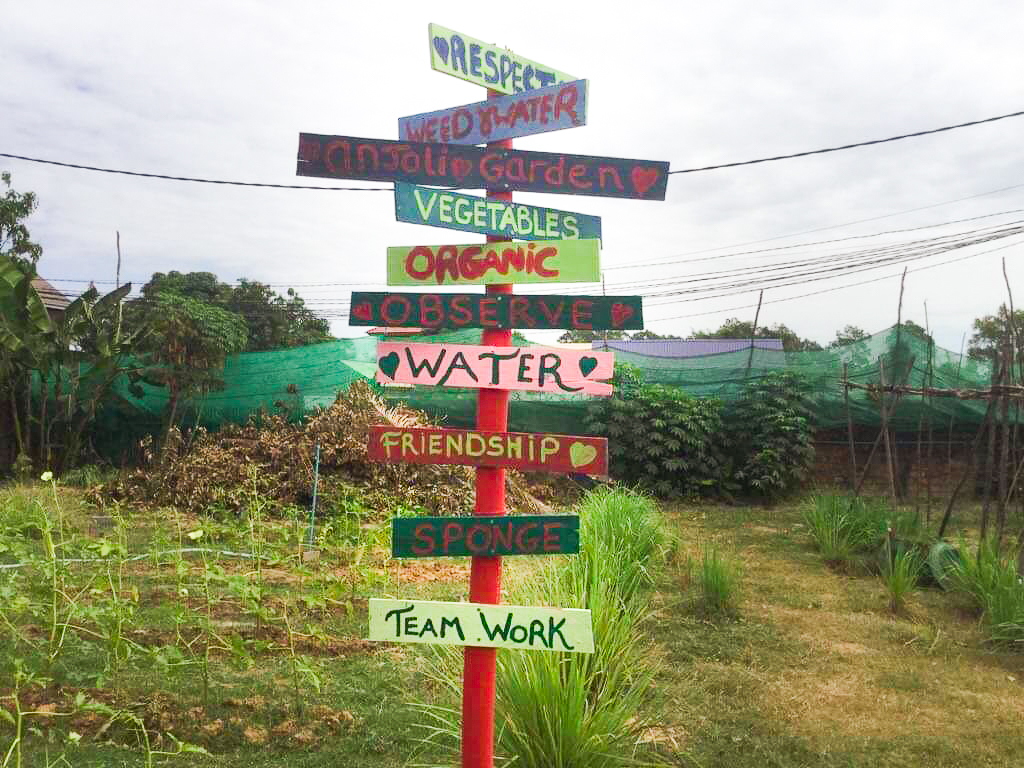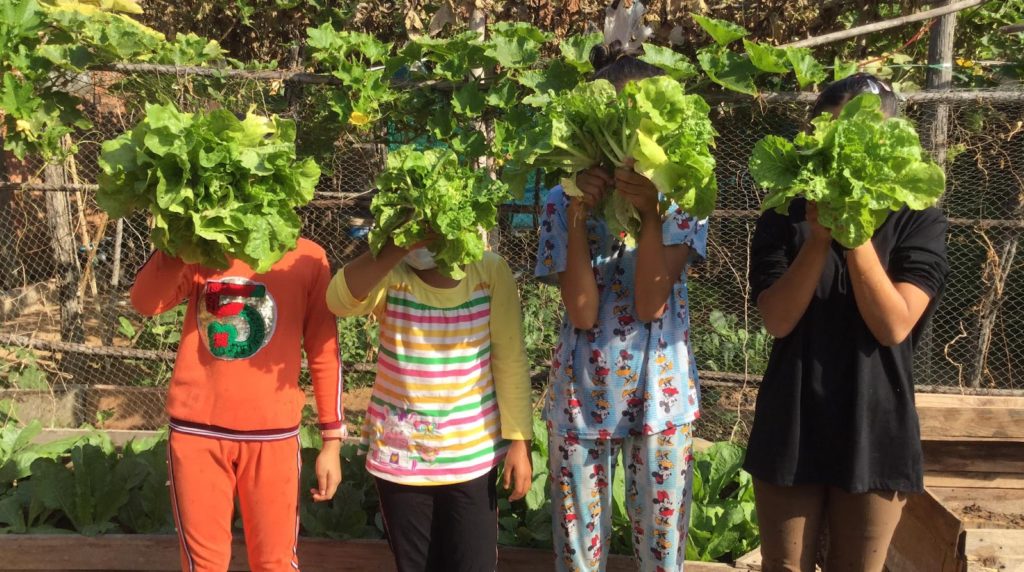Our Garden Program
As part of our program, all Anjali students spend one hour a week in garden class. In class, the children grow vegetables while learning about nature and sustainable practices. They learn the value of organic practices (we make our own, all-natural pesticide and fertilizer). We also teach the importance of composting. The students are challenged to bring in their food scraps from home to put in our compost areas or create their own compost at home. This way, the organic material is repurposed into nutrient-rich soil rather than wasted in landfills. Children take the vegetables home to eat, developing a healthy taste for fruits and vegetables.
Local businesses help support our garden by buying and selling some of our products. Most Siem Reapers have enjoyed a meal at Tevy’s Place, which buys some herbs and vegetables from us, while Satu and Babel Eco Shop sell our loofah – the perfect zero-waste replacement for all your cleaning needs.
❤We love our garden, here are some reasons why❤
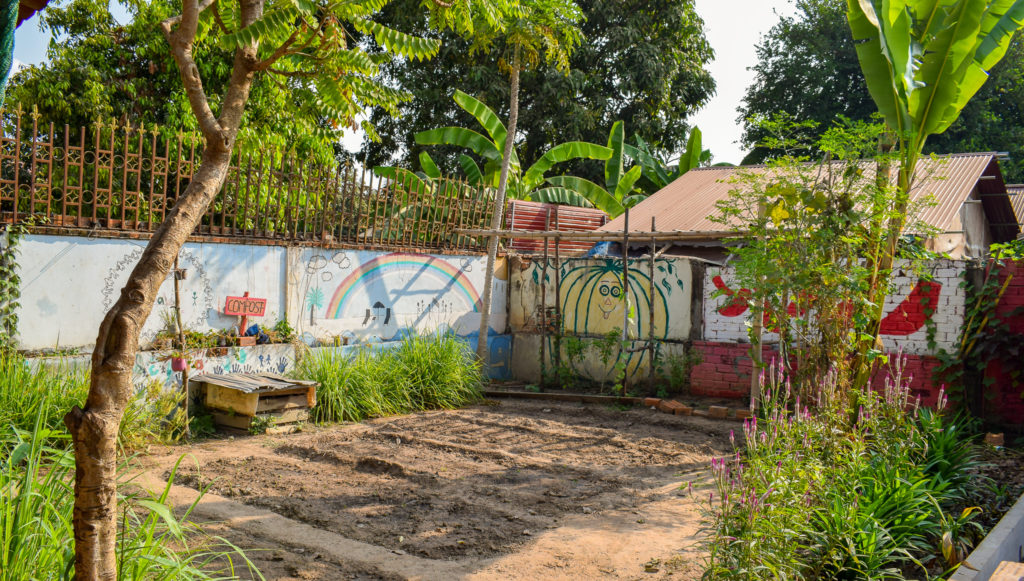
Hands-on Application of Learning
If you have a garden and a library, you have everything you need. – Marcus Tullius Cicero
Students are in a natural classroom when they step into the garden. They see nature at work. They observe the life cycle of plants, insects, and animals. Students can watch caterpillars munch on the plants and later turn into butterflies that pollinate the flowers.
As they watch a seedling sprout into a chili pepper, they explore higher-order thinking skills such as cause and effect. They can analyze and determine why some plants are thriving, while others do not. These thoughts create connections to what they are learning in the classroom, deepening their understanding.
Reconnecting with Nature
The garden program helps create sustainable mindsets. Students learn firsthand the impact of different weather conditions and gain an appreciation for where food comes from. They learn about keeping the garden clean and green. From an early age, the students learn to separate the plastic from the natural waste – with plastic going in the recycling or trash bin and natural waste going into the compost to be regenerated into soil.
As they interact with nature, they create a stronger relationship with it. As their relationship grows with the Earth, so does their desire to protect it. They can take the sustainable mindsets they create and share them with their families and communities. Baba Dioum, a forestry engineer once said, “In the end, we will conserve only what we love, we will love only what we understand, we will understand only what we are taught.”
Life Skill Development
Look deep into nature and you will understand everything better – Albert Einstein
From an early age, our students are involved in the life of the garden. As they grow they see the evolution of what they plant and the development of the nature around them. More than learning, they are living and experiencing the evolution of the vegetables and flowers they grow. They develop the skills that are crucial to their growth.
The students learn responsibility and accountability. The plants depend on them to flourish. At the same time, they learn communication skills while working with their peers and teachers to solve problems and take care of the garden. The students also learn the importance of being organized. They have to organize the tools in the proper way so that the next class can easily find them.
Seeing the Gardens Grow
I grow plants for many reasons: to please my soul, to challenge the elements or to challenge my patience, for novelty or for nostalgia, but mostly for the joy in seeing them grow. – David Hobson
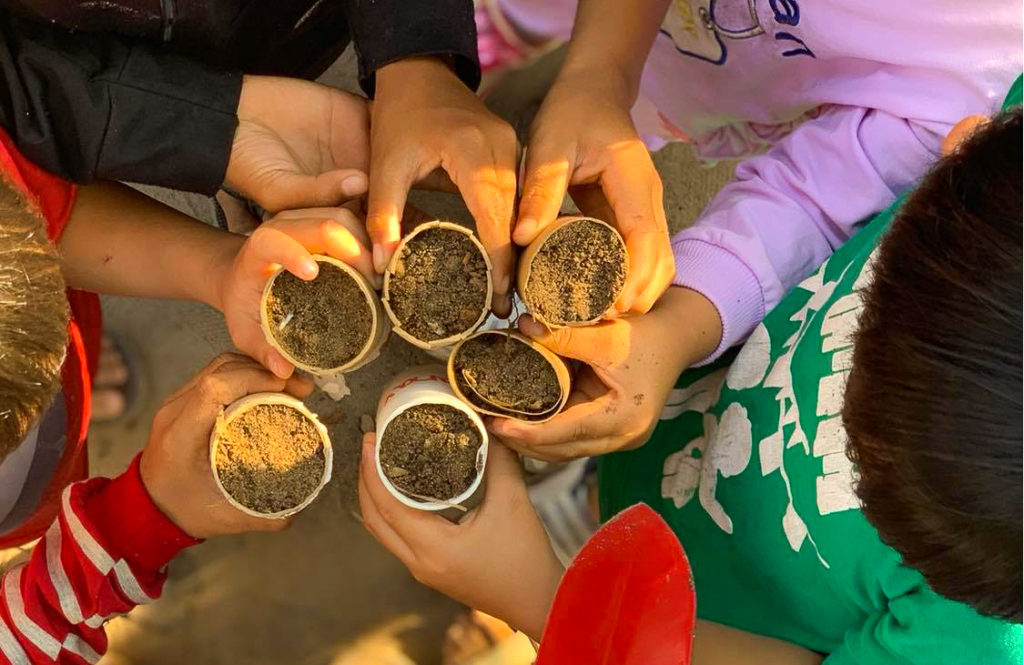 When planting a seed, the student automatically sets a goal of seeing that seed develop into a thriving plant. The students have to put hard work into cultivating the plants and can see their progress as it grows.
When planting a seed, the student automatically sets a goal of seeing that seed develop into a thriving plant. The students have to put hard work into cultivating the plants and can see their progress as it grows.
Gardening takes patience and commitment. During this era of immediate gratification, gardening teaches the value of hard work and persistence. You don’t want to put all the hard work and care into your garden just to pull out the vegetable before it is ready! However, once it is ripe, students feel a great sense of accomplishment and gratification when they see the results. Seeing this goal accomplished grows their sense of self-confidence. If a storm comes and destroys the plant, students learn that some things are out of their control and develop resilience to pick up the pieces and start again.
Teamwork
In the garden, the students are taught to work together for a common goal. They are learning how to collaborate and communicate with each other creating other social connections. By learning the respect of nature and the process of nature they are learning mutual respect at the same time.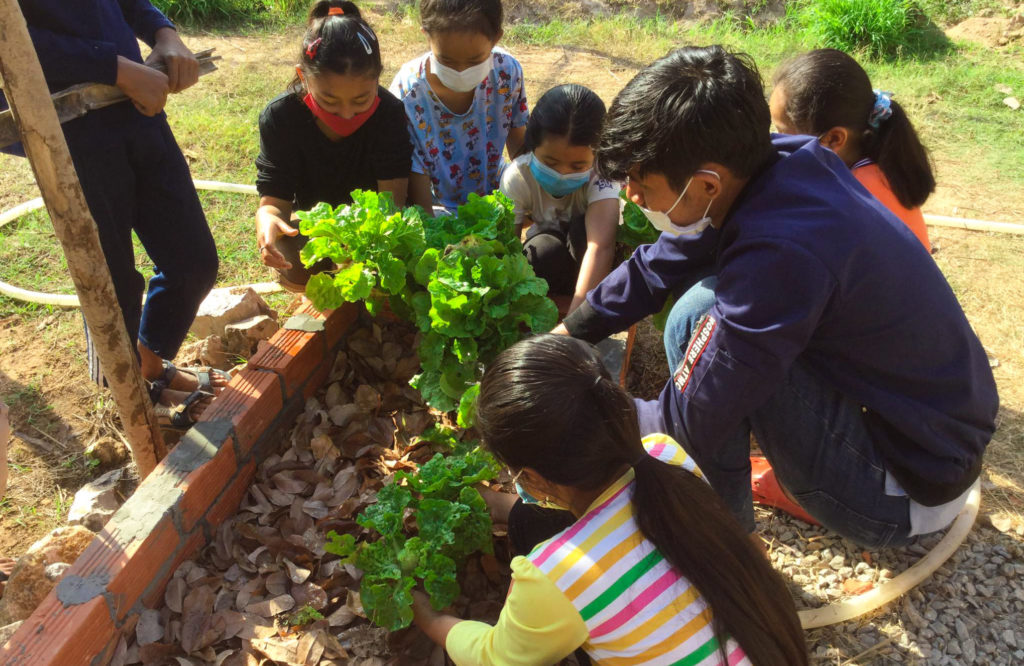
The Power of Home Gardens
While this program has been interrupted by the pandemic, we took the elements of our garden program and helped our families create small, urban gardens at home to help reduce their food costs. We expanded this program to 100 additional families in the Sala Kamreuk community with Child’s Dream. Families learned how to make organic fertilizer and pesticides, and received tools, seeds, and ongoing support from our staff. Families are still collecting seeds to keep growing their gardens.
Four Anjali alumni students living and studying in Sihanoukville have created their own home vegetable garden. Studying online and ongoing lockdowns are tiring. They reported the garden gave them a place to escape, be outside, and relieve some of their stress. Not to mention they had some yummy vegetables!
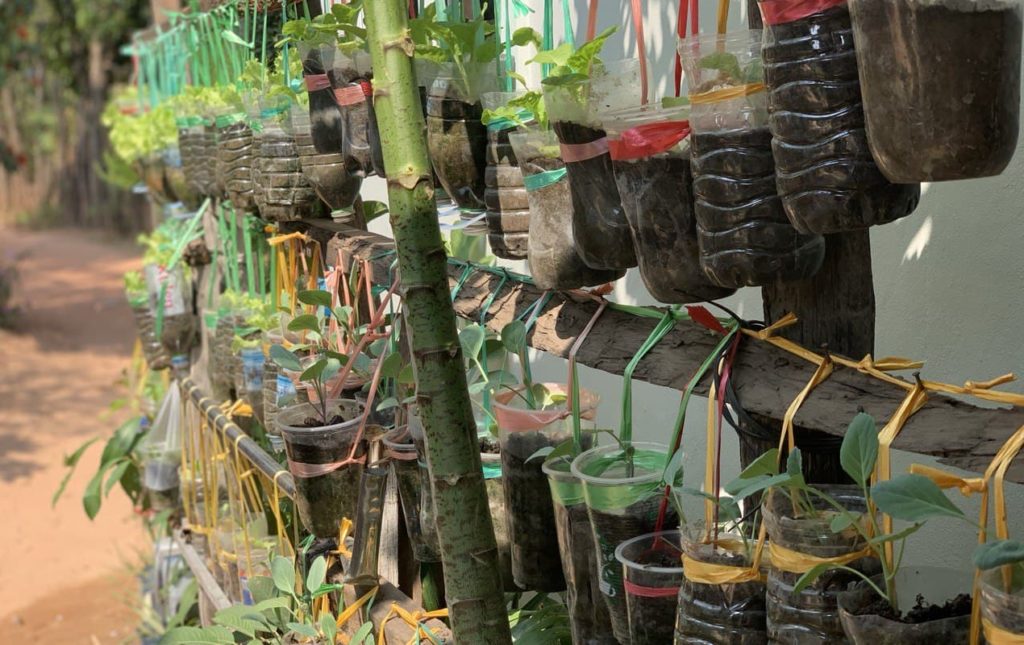
The Heart of Our Garden
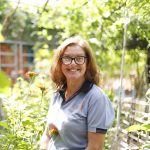 Gardening is no easy task, especially in the hot Cambodian climate. Annie, our long-term gardening volunteer has been with us for five years. She brings her love for gardening to Anjali House every day. Many of the older kids fondly remember singing and dancing to “The Chili Song.” We are very grateful for the creative ideas and passion that she brings to the program.
Gardening is no easy task, especially in the hot Cambodian climate. Annie, our long-term gardening volunteer has been with us for five years. She brings her love for gardening to Anjali House every day. Many of the older kids fondly remember singing and dancing to “The Chili Song.” We are very grateful for the creative ideas and passion that she brings to the program.
